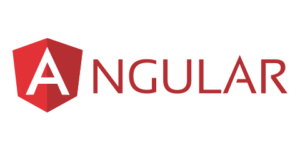This post will explain expressjs alternatives. This essay will look at ten of the most effective ExpressJS alternatives. Koa, Fastify, EmberJS, Nest, VueJS, and others are on the list. ExpressJS is the de-facto standard and most well-known library in the Node.js ecosystem, and has been for many years.
Top 10 Best ExpressJS Alternatives In 2022
In this article, you can know about expressjs alternatives here are the details below;
Node gave JavaScript developers the opportunity to use JavaScript on the server for the first time with Express. It gave the language a new backend capability, allowing them to publish Node.js apps as websites. While Express ushered in a new era of JavaScript development and revolutionised the way developers create websites, other JavaScript libraries have grown in prominence as a result of the variety of capabilities they provide.
Furthermore, Express 5, the next major version, has been in alpha for the past seven years, with developers still waiting for a mechanism to support async functions.
We’ll look at some of the advantages and disadvantages of utilising ExpressJS for various projects in the following post. Following that, we’ll look at some of the best ExpressJS alternatives and their key features.
If you’re considering using ExpressJS for your next project, this list should help you make an informed decision on which framework is appropriate for your needs.
Continue reading to learn about some ExpressJS competitors.
What exactly is ExpressJS?
ExpressJS is a JavaScript-based backend web app framework for Node.js that allows developers to create single-page, multi-page, and hybrid web apps and APIs.
It’s essentially a Node.JS layer that helps handle routes, middleware, template engines, and static file servers. It is simple, unprejudiced, and powerful, guaranteeing that Node’s radical I/O performance is not jeopardised.
A Node.js project containing numerous middleware functions is called an Express app. Express allows developers to create apps according to their own preferences, which is useful for designing a very unique niche project with no precedent.
It does not consider database integration to be a critical component of the package, hence it is not built with a specific database in mind.
Continue reading to learn about some Express JS alternatives.
Express JS’s Benefits
• Quickly scale
Express allows for greater flexibility and future growth by dividing the application functionality into smaller modules (or microservices) rather than establishing a monolithic core.
Later on, you may easily add more microservices to the existing ones to offer new functionality to your app.
• Simple to grasp
Express is one of the most well-documented JavaScript frameworks, making it simple to learn and integrate into workflows.
It has a strong community behind it, so you can quickly get help with your projects if you run into problems.
If you’re already comfortable with JavaScript, you can jump right into frontend and backend programming using Express.
• Community involvement
Express is also one of the most well-supported Node frameworks, with a large and active open source community reviewing and updating the code.
If you have any problems when working with Express, you can quickly seek assistance from a friendly community.
Continue reading to learn about some Express JS alternatives.
Express JS’s drawbacks include: • Callbacks
Because Express and Node are single-threaded asynchronous, they rely significantly on callbacks, which are routines that are run after each task in the queue is completed.
Having a queue of jobs, each with its own callback, causes “callback hell,” which entangles the code and reduces its quality.
• Coding Structure
Despite the fact that Express APIs are very robust on their own, numerous tools in the npm registry have not been fully vetted and thus are of poor quality.
Because the register is not well-structured, it can be difficult to identify the best options for your needs. With Express, you must choose a strategy and stick to it.
Express is a low-scope routing toolkit with middleware support that lacks some full-stack framework functions that may be required in specific cases. Also check alternatives to onesignal
It is based on the concept of middleware, and developers should be aware with its advantages and disadvantages before using Express to create apps.
Alternatives to ExpressJS
The best ExpressJS competitors are listed below.
1. Koa
Koa is a far more customisable alternative to existing NodeJS frameworks, developed by the same team behind ExpressJS.
It’s ideal for projects that need to be flexible and interoperable. With async functions, Koa eliminates the need for callbacks, which is one of Express’s biggest flaws.
The primary difference between Koa and Express is how they handle middleware; Koa does not come with any middleware pre-installed and requires modules for routing and templates.
2. Fastify
Fastify is a popular open-source web framework for the Node environment that is known for its speed, being up to 20% faster than Express in nearly every request.
It encapsulates plug-ins completely, parses incoming requests into JSON for faster rendering, and allows for quick routing. Fastify also features a more readable syntax for developing async controller code.
3. Nest
NestJS is a Node.js framework for creating scalable and efficient server-side applications that is free and open-source.
It’s based on Google’s Angular and written in TypeScript, a typed superset of JavaScript that lets you employ functional, functional reactive, and object-oriented programming techniques.
Nest simplifies the division of apps into microservices, resulting in a more logical design than Express with fewer components.
4. Ember JS
Ember JS is a famous JavaScript framework that is utilised by some of the world’s most well-known firms, including Apple Music, Vine, Twitch, and LinkedIn.
It follows the model-view-viewModel (MVVM) architecture and helps developers to create highly scalable web apps using familiar idioms. Also check FedEx Fulfillment Alternatives
Ember is the optimal JS framework to employ if your project’s development team is large.
5. BackboneJS
Backbone has continually increased in prominence as one of the most viable alternatives to Express in the Node.js ecosystem since its initial release in 2010. It’s a RESTful JavaScript library based on the MVC paradigm that’s free and open-source.
Because Backbone is based on only one underlying library, Underscore.js, it is exceptionally lightweight and adaptable, making it simple to create apps and their front ends using JavaScript.
6.Vue JS
Vue is one of the newer JavaScript framework alternatives to Express, although it has been steadily gaining popularity.
Despite being one of the lightest JS frameworks available to developers, it is also based on the MVVM design and offers far more basic functionalities.
Vue has a familiar templating syntax, making it easier and faster to integrate and migrate existing projects.
7. JS knockout
Knockout is a standalone implementation of the MVVM design in JavaScript that works with any web framework.
With the help of Templates, it provides an easy and clean solution to manage sophisticated data-driven interfaces, allowing developers to quickly construct complex UI structures.
Declarative bindings, extensive browser support, built-in templating support, and other Knockout features are among the most popular.
8. Angular
The current version of Angular is a complete rebuild of Angular JS, which was one of the first JavaScript-based full-stack web frameworks.
Angular 2.0 is a client-side framework built in TypeScript that is primarily used to construct single-page web, desktop, and mobile apps using HTML strings.
The upgrade also detached the DOM from the framework and added several renderers, allowing for speedier app creation and loading.
9. Meteor
MeteorJS, like Angular, is a full-stack JavaScript framework mostly used for frontend development.
It nourishes developers with a comprehensive set of interconnected libraries that can be used to quickly and easily create webpages and online apps.
Meteor provides a database template and handles Express with the help of its template system and Blaze, allowing the MEAN stack to be used.
10. Sails JS
Sails JS is a popular MVC framework for the Node JS environment that emulates the MVC structure of frameworks such as Ruby, but with support for current app requirements.
It’s simply a lightweight framework that sits on top of Express and provides a consistent API regardless of the database used. Sails JS, like Rails, has an ORM interface that encapsulates database interaction.
Conclusion
Express is best for highly dynamic online applications since it enables developers to quickly create scalable web apps. Also check Red stag fulfillment alternatives
If you’re functioning on a huge project that will be backed by a large team of developers, a lack of consistency can cause your teams’ productivity to suffer.
As a result, before choosing a web framework for your project, you should carefully analyse its requirements.
If you’re having trouble deciding between the finest ExpressJS alternatives on your own, consider contacting the pros at one of the top app hosting firms.
They can aid you in creating an informed decision by assessing your requirements and recommending the best software solutions for your forthcoming projects.
FAQ
What exactly is ExpressJS?
Node.js backend web app framework that is free and open-source.
What are the advantages and disadvantages of ExpressJS?
Pros: Quickly scale, simple to understand, and community support
Call backs, code organisation, and middleware are all disadvantages.













